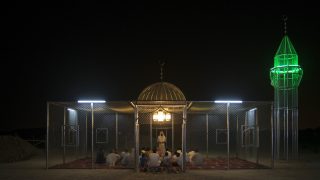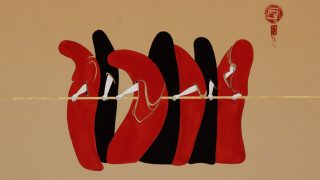The royal order setting out a 20% quota for women in the Saudi Advisory Council (Shura Council) has sparked controversy and heated debates. The opinions are split, and the Saudi media starkly embodies the disparity.
Liberal and conservative forces in Saudi Arabia are clashing over the direction the country’s media are taking, with conservative preachers accusing channels of broadcasting sinful programs, reports Ahmad Dohman.
A few weeks ago, a prominent Saudi preacher issued a fatwa prohibiting children from watching MBC’s children’s entertainment channel. He insisted that the network was distorting the minds and ideas of young people, promoting atheism and vice, and depicting western characters that are fully taken by the “American dream.” Soon enough, the network hit back, saying that he urgently needed psychiatric help. Twitter was teeming with debates about the subject, and Saudi society appeared to be completely at a loss. Are the views of the preacher true, or does the channel represent a level of freedom unfamiliar to the ultraconservative kingdom?
At the same time, Saudi Minister of Culture Abdulaziz Khoja has announced his readiness to shut down all satellite channels that instigate sedition and threaten national unity. Wahabi channels continue to air inflammatory shows that encourage nothing but intolerance and extremism. They tear down the Saudi social fabric as they attack minorities that have co-existed for centuries with scathing insults and accusations.
The war in Saudi Arabia is divided between two opinions: conservativism to the extent of extremism, and openness to the extent of liberalism, even if masked with religious convictions. Preachers sometimes issue edicts to announce the sinfulness of watching networks that are financed by rich Saudis and that feature many prominent Saudi figures and discuss subjects pertaining solely to the affairs of the kingdom. These channels are considered to represent the Saudis who pray, fast, sing, dance, are concerned with fashion and who are interested in discussing religion without being swamped in extremism and terrorism. Saudis are thus portrayed as individuals who have fun, do not mind watching Turkish and Lebanese shows, or being informed about the social issues of the Gulf. As for politics, the government allows the dissemination of the information it wants public.
The media networks are owned by Saudis, and their policies do not contradict those of the kingdom, neither explicitly or implicitly. Yet, the channels are going to lengths that are refuted by Saudi society: women — wearing their full makeup and talking in a Saudi dialect — go on air and address a society in which, even now, calling a woman by her name publicly is still considered indecent.
This is not the first time these networks have faced vehement attacks. The MBC network was previously heavily criticized by Saudi preachers following its broadcast of the Turkish romantic series “Noor”, considering it to be “sinful and corruptive to women.” Yet, this movement of extremism, instigated by many preachers, sows the seed of terrorism and does not live up to what the Saudis wish for. Within the kingdom, terrorism and jihad against the non-believers is not an accepted trend. Saudis do not wish to destabilize their kingdom; they believe that religion belongs in the mosque and not in jihad arenas. As a result, Saudi Arabia holds a stiff stance against any attempts to ignite religious strife, even if it has to acknowledge minorities and give more civil rights.
The government is inclined toward taking the side of open channels over the Wahabi way, since the latter poses more of a threat than those airing entertainment.
Saudi Arabia is currently seen as the land of oppressed women, who take off their abaya and veil once they step out of the kingdom, in a bid to live the free life of which they are deprived in Saudi Arabia. The Saudi media represents a society different to the Islamic, conservative society entrenched in the minds of Saudis. Many back up the preachers’ views, calling for a boycott of the networks and fighting the social American invasion. Many want to restore the faith in an extreme way that the Saudi authorities fear. On the other hand, many support the minister and are faced by accusations of being corrupted and sinful. Obviously, the debate will go on.
Translated by Al-Monitor



